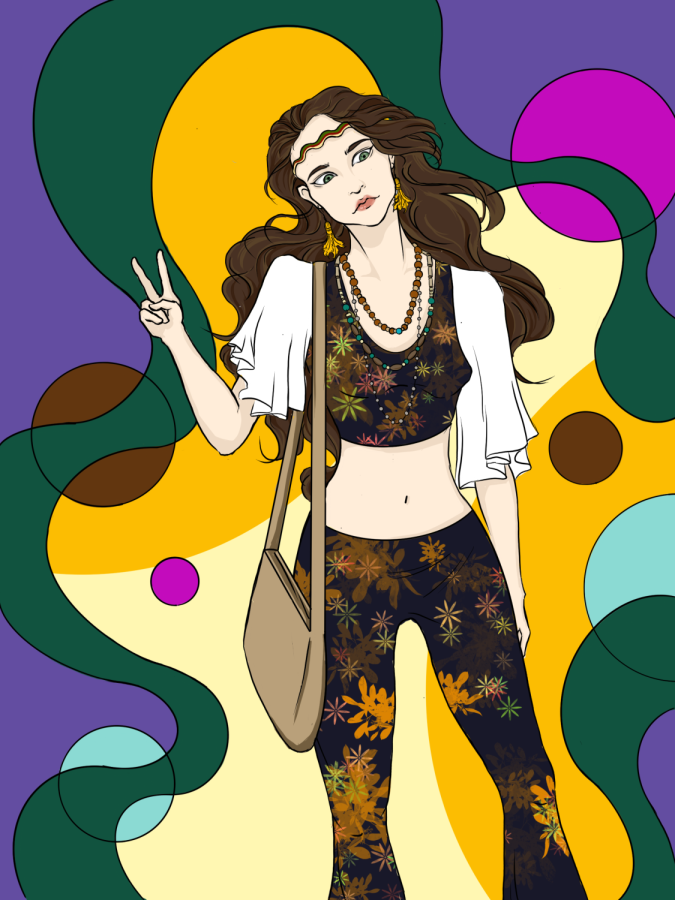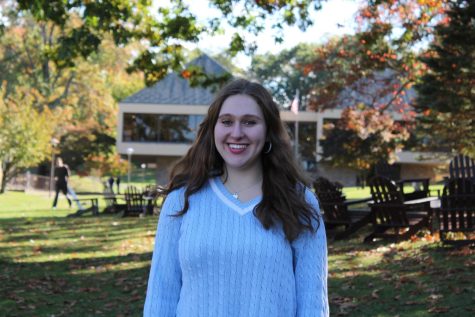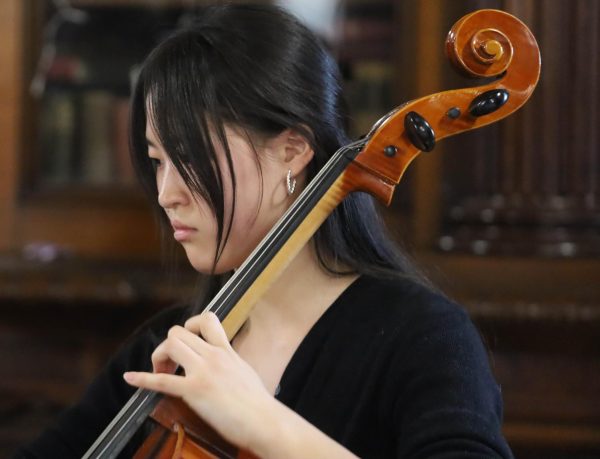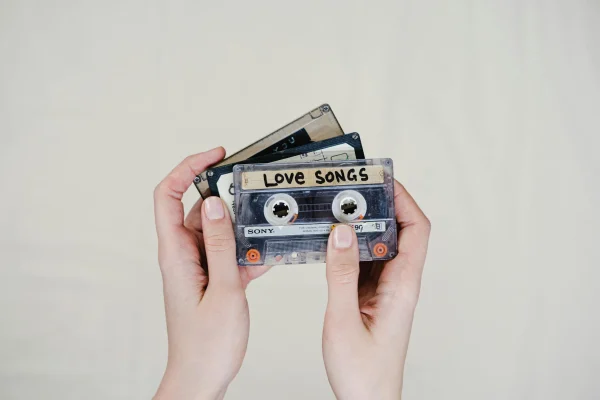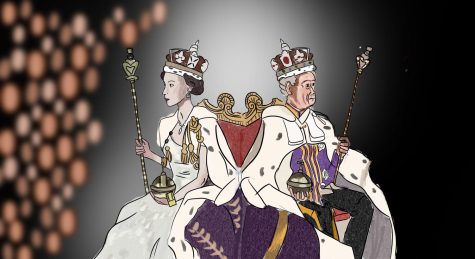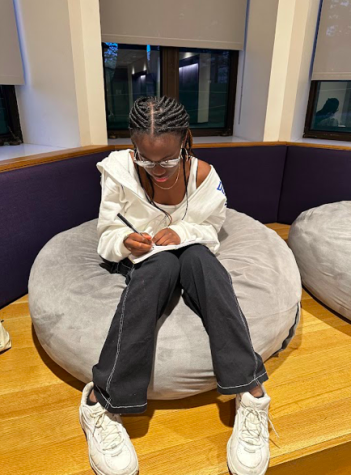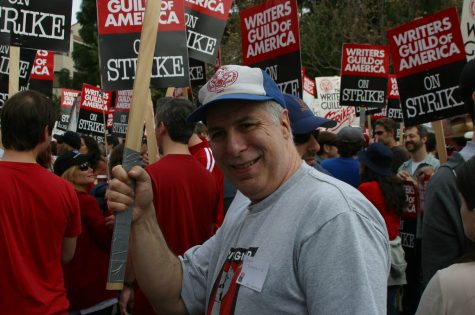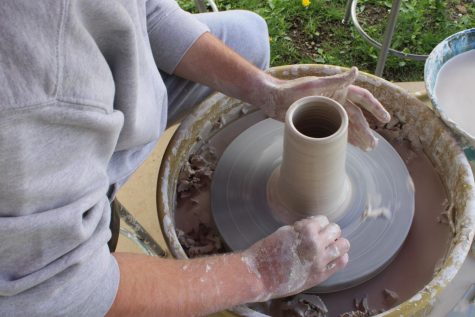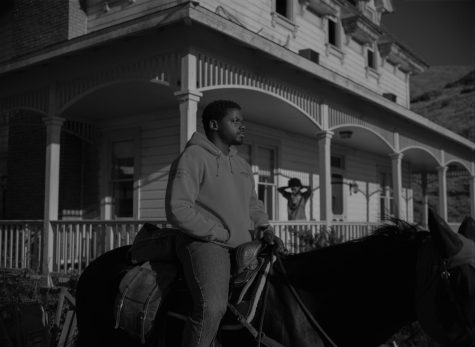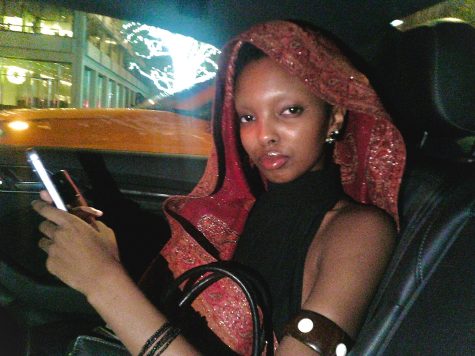Living it up in the ‘60s – how Gen Z revived hippie culture
May 2, 2023
The 1960s was a revolutionary time in history that ushered in an era of social revolution and progressive views. America’s youth resisted societal norms instilled in them by the older generations consequently opening the door for social reform. In 2023, America continues to face extreme political turmoil. Generation Z has played an critical role in leading social reform. Similar to the hippies of the 60s, Gen Z has become fueled by activism due to frustration with government. Young people today have instinctive attraction to counterculture beliefs. After a generation of selfish materialism we have come full circle, rediscovering progressive values. This raises the question of whether the ideals of the 60s dream died. It is possible that hippie culture will have a resurgence?
San Francisco became the epicenter of the hippie and counterculture movement. In 1967, almost 100,000 young hippies crowded the streets of San Francisco with flowers in their hair and rings on their fingers. The summer event took place in the Haight-Ashbury neighborhood. The summer embodied drugs, music, free-love, and anti-war activism. This was the media’s formal introduction to the country’s growing counterculture movement of the 1960s. The Summer of Love represented the counter-culture beliefs of spirituality and a coming together of people. Events such as “The Summer of Love” united people with similar goals and aspirations that aligned with principles of peace and love.
The 60s were strongly influenced by the shared experience of music. Self-expression was paramount. It allowed vast advancements in art and music. Rock and Roll became a significant cultural phenomenon, with the growth of artists such as The Grateful Dead, The Beatles and Bob Dylan, among others. “All the songs in the 60s had a statement. They weren’t all love songs. Musicians captured what was going on in the world through music,” Peggy Edmond, an attendee of the Woodstock Festival, said. Music also propelled events, shaping societal change. Music was performed around the country, uniting all with a feeling of hope and peace. During that summer of 1969 Woodstock was held – a music festival: “three days of peace and music.” “Woodstock connected society through the fuse of the most iconic rock bands from that era. It was a phenomenal time. The music never stopped. The only time it stopped is when the rain came out,” Edmond said. The concert is considered a defining moment for the era. “It’s a show of cheerful defiance. Let’s show that we can triumph over war and assassinations. Many people who were there thought of the music as itself a feat of defiance…. And what happened subsequently was that rebellion became the dominant culture.“ Todd Gitlin said. Author of “The Sixties” Woodstock encouraged the push for cultural movements and spiritual awakenings. “When we got home everybody’s parents asked if we were alive. The festival was all over the news and the radio. Skeptics worried that it was dangerous. We felt that it was inspiring,” Edmond said. On the fourth morning of Woodstock, Jimi Hendrix performed his rendition of “Star Spangled Banner.” His performance rejected the status quo and welcomed an alternative.
The ‘60s was an era of love that was a response to widespread violence. The growing counterculture movement inspired young people and promoted political activism. “Hippies found a different way of life,” Edmond said. The country’s civil rights movement was in full swing. However, peaceful civil-rights demonstrations were met with aggressive police action. Additionally, the assassinations of Robert Kennedy, Martin Luther King Jr, and Malcolm X were milestones in the division of society. The escalation of the Vietnam War as well as the civil rights movement fueled counterculture beliefs. Many Americans opposed the morality of the war. It was extremely violent and led to devastation on all fronts. The war further divided the country: “doves” wanted the war to end, “hawks” supported involvement until the war was over. “Flower power” was a term used to inspire the anti-war movement of peace and love values. The hippies in Haight-Ashbury, San Francisco walked around, handing out flowers, promoting freedom.
Talkin’ ‘bout my generation
Members of Generation Z have experienced similar domestic and international hardships. They have witnessed global inequality and observed historical events such as the January 6th insurrection, the Ukraine War and the overturn of Roe vs. Wade. Furthermore, the last decade has been defined by the ongoing fight for racial equality. In 2020, George Floyd, a black man, was killed in the act of police brutality. His death resulted in a renewal of the racial justice movement with protests and increased involvement of the Black Lives Matter movement.
That same year, the world was put on lockdown due to the COVID-19 pandemic. Stuck at home, in 2 years of quarantine, people had time to reflect on the world. They had time to embrace the idea of rejecting social norms. “The 1960’s was kind of the the beginning of what’s happening today. However protests today are not as peaceful,” Edmond said. Data from public relations and research firm Edelman shows 70% of Gen Zers are involved in a social or political cause. They are set apart from other generations due to their passion for advocating for the causes they believe in. According to Reuters, they are the generation that is most likely to boycott a product, company, or country due to social beliefs. Both the 1960s and recent years have ushered in different forms of progressivism “My age group grew up in a very peaceful way. I’m glad I experienced it, but I’ll never happen again. The world today is not about peace and love,” Edmond said.
It is evident that hippiedom is not about clothing or music; it’s a movement as well as a set of values. It represents a connected worldview, and a desire for spirituality. Hippies live to celebrate the precious present and have a profound love for the world and those around them. Their profound impact on American culture continues to influence future generations. It is a culture and lifestyle.



